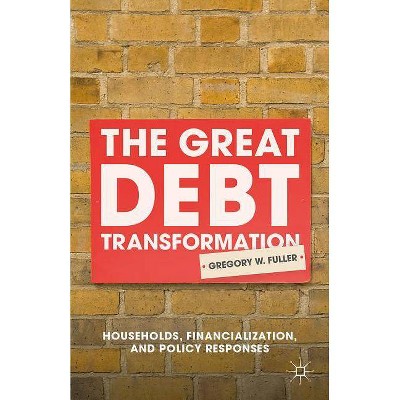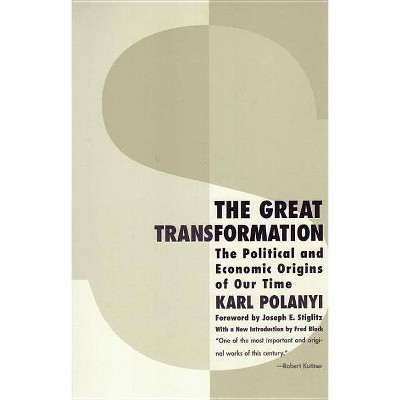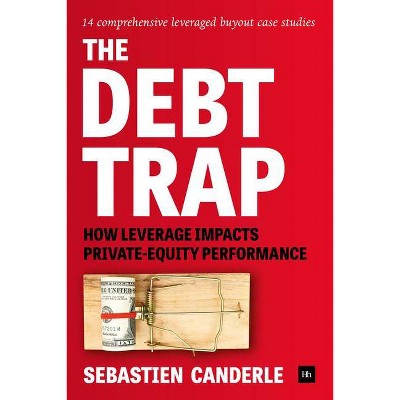The Great Debt Transformation - by G Fuller (Hardcover)

Similar Products
Product info
<p/><br></br><p><b> About the Book </b></p></br></br><P>The identity of society's borrowers has changed: households and banks are borrowing more, businesses are borrowing less. As we shift toward consumer- and finance-driven growth, instability, indebtedness, and inequality have risen. This book explains this transformation and examines how some countries have approached it.<p/><br></br><p><b> Book Synopsis </b></p></br></br>Global financial markets have transformed over the past three decades with potentially dangerous results. Growing competitiveness in financial markets has forced banks to adapt by merging, growing, and innovating. The result has been an unprecedented transformation in the identity of society's borrowers: households and banks are borrowing more, businesses are borrowing relatively less. This "Great Debt Transformation" has profound consequences: as we shift toward economic growth fueled by consumption and financial investment, instability, indebtedness, and inequality have all risen. This book explains this transformation, why it matters, what caused it, and most importantly examines how some countries have restrained the transformation underway. Britain, France, and Germany have taken very different approaches to this transformation and those approaches have resulted in divergent results. This book aims to turn those different results into lessons to help us make sense of the great economic challenges of our time."<p/><br></br><p><b> From the Back Cover </b></p></br></br><p>Global financial markets have transformed over the past three decades - with potentially dangerous results. Growing competitiveness in financial markets has forced banks to adapt - by merging, growing, and innovating. The result has been an unprecedented transformation in the identity of society's borrowers: households and banks are borrowing more, businesses are borrowing relatively less. This "Great Debt Transformation" has profound consequences: as we shift toward economic growth fueled by consumption and financial investment, instability, indebtedness, and inequality have all risen. This book explains this transformation, why it matters, what caused it, and - most importantly - examines how some countries have restrained the transformation underway. Britain, France, and Germany have taken very different approaches to this transformation - and those approaches have resulted in divergent results. This book aims to turn those different results into lessons to help us make sense of the great economic challenges of our time.</p><p/><br></br><p><b> About the Author </b></p></br></br><p>Gregory Fuller is an Assistant Professor of International Political Economy at the University of Groningen, the Netherlands. Previously, he held appointments at Johns Hopkins University, USA, and American University, USA. His background spans Economics, International Finance, and Comparative Politics, and has informed his interdisciplinary analysis of contemporary economic challenges. </p>
Price History
Price Archive shows prices from various stores, lets you see history and find the cheapest. There is no actual sale on the website. For all support, inquiry and suggestion messagescommunication@pricearchive.us









